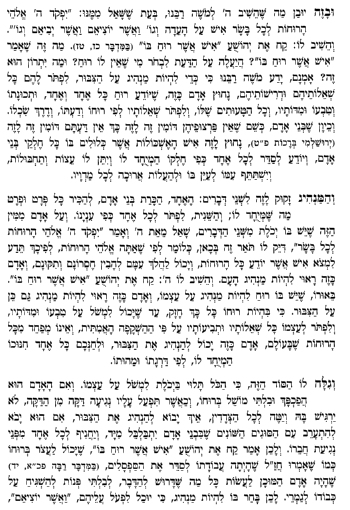Moshe pleads with Hashem to appoint a new leader, יִפְקֹ֣ד י״י֔ אֱלֹהֵ֥י הָרוּחֹ֖ת לְכׇל־בָּשָׂ֑ר אִ֖ישׁ עַל־הָעֵדָֽה. Rashi says it is plural, רוחות to indicate that the leader has to be able to deal with the many winds, the left wing, right wing, centrist etc. אלהי הרוחות – למה נאמר? אמר לפניו: רבונו של עולם גלוי לפניך דעתו של כל אחד ואחד, ואינן דומין זה לזה, מנה עליהם מנהיג שיהא סובל כל אחדב לפי דעתו. Hashem responds וַיֹּ֨אמֶר י״י֜ אֶל־מֹשֶׁ֗ה קַח־לְךָ֙ אֶת־יְהוֹשֻׁ֣עַ בִּן־נ֔וּן אִ֖ישׁ אֲשֶׁר־ר֣וּחַ בּ֑וֹ וְסָמַכְתָּ֥ אֶת־יָדְךָ֖ עָלָֽיו. He switches to the singular tone, why? And what does it mean אשר רוח בו?
The Alter of Novardak explains (in tikkun hammidot pg. 68 of Madregot Ha'adam) that one who rules over their own desires, middot and nature to understand the correct approach to problems is one who can deal honestly with other people's problems, questions and inquiries. It is because אשר רוח בו, he controls his own winds pushing in various directions that makes him fit to deal with others.

No comments:
Post a Comment